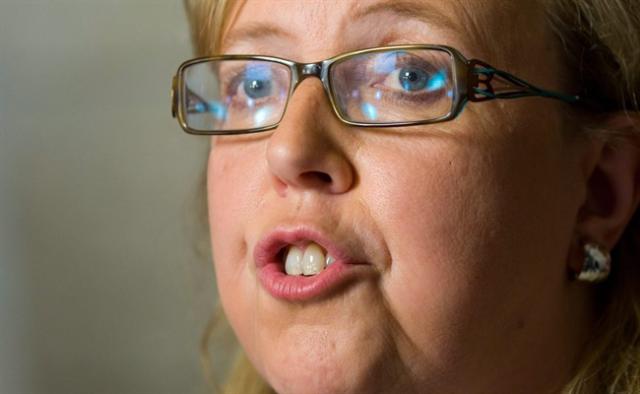 Canada Politics
Canada PoliticsElizabeth May creates Twitter firestorm over tweet about Wi-Fi dangers

An Elizabeth May tweet about the dangers associated with exposure to electromagnetic frequencies (EMF) from cell phones and WiFi generated some heated debate this week.
"Interesting and informative session on electromagnetic frequencies and Smart Meters," the Green party leader wrote. "So glad I don't have WiFi at home."
The tweet caused a storm of criticism that took even May by surprise.
"@ElizabethMay You were doing so well, and then the quackery began. Probably wasn't gonna happen, but you've lost this SGI resident's vote," tweeted sfontaine.
Kevin Kindred tweeted, "Really sad to see @ElizabethMay tweeting junk science and scare tactics about WiFi. I expect better, she's usually smart about science."
May expanded on her position in a blog Thursday, posted on the Green party website.
"I haven't been attacked with such nastiness in ages," she wrote.
"Nevertheless, I was not speaking without a careful review of the background on this issue . . . There is no scientific consensus on (electromagnetic frequencies) and health. But, it is equally not possible to make the claims many on Twitter have made today that Wi-Fi and cellphones are all proven "safe."
To further her case, May cites several studies including a May 2011 resolution by the Council of Europe calling for the use of precaution in relation to exposure to EMF, and an inconclusive World Health Organization report from June 2011 that lists EMF as a Class 2B human carcinogen.
With her tweets and her subsequent blog, May joined the scores of parents raising concerns about the increased number of wireless Internet hookups in schools across Canada.
"Our stance is simple and responsible. Exercise the precautionary principle. A risk of a health problems requires a cautious approach until the science is settled," she wrote.
"The place where those reasonable precautions are most important is related to our children. That is why the European Union and Council for Europe urge much stricter standards than in Canada."
(CP Photo)

